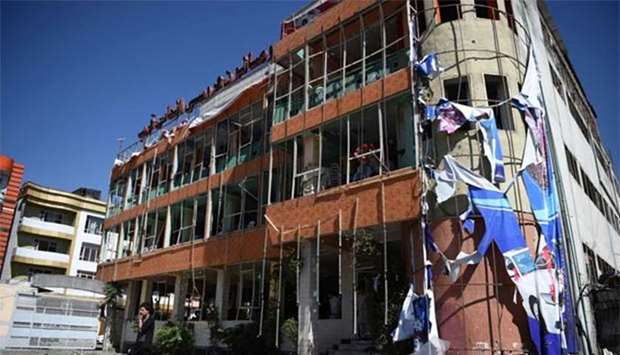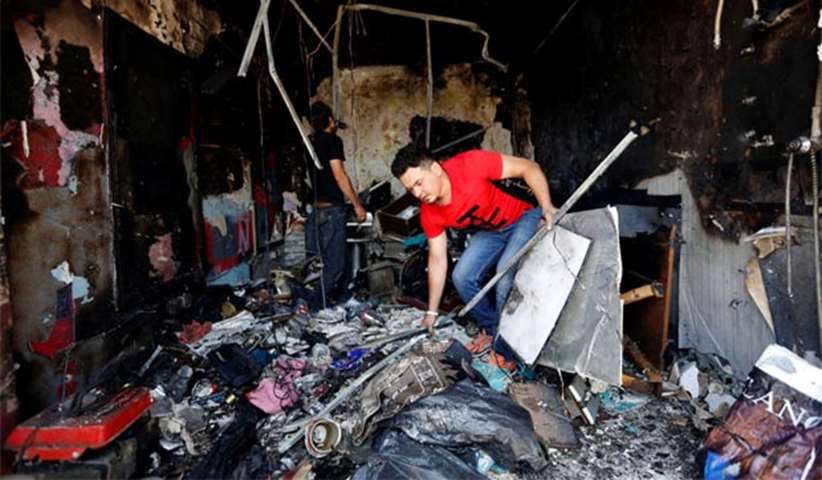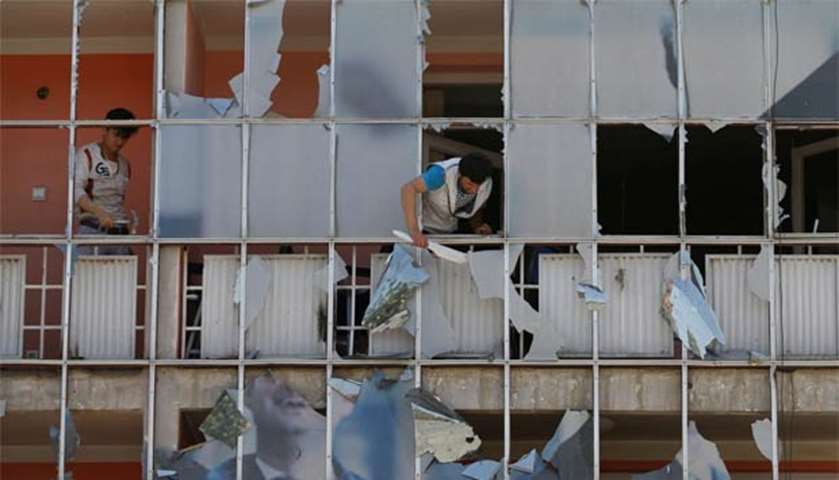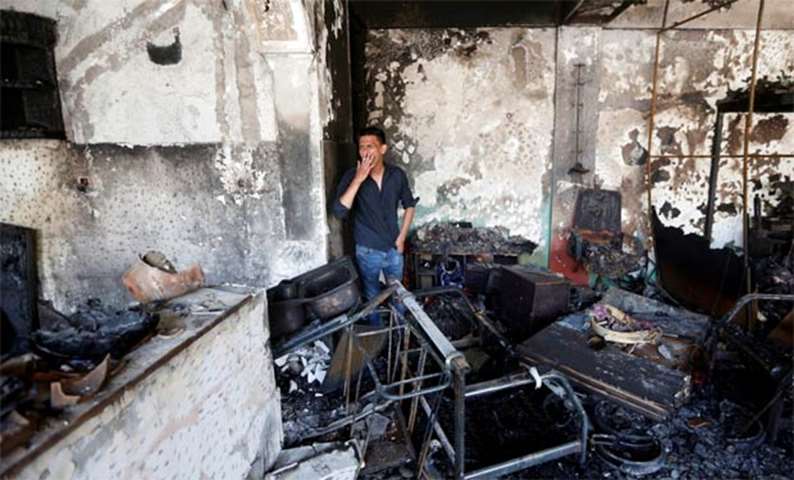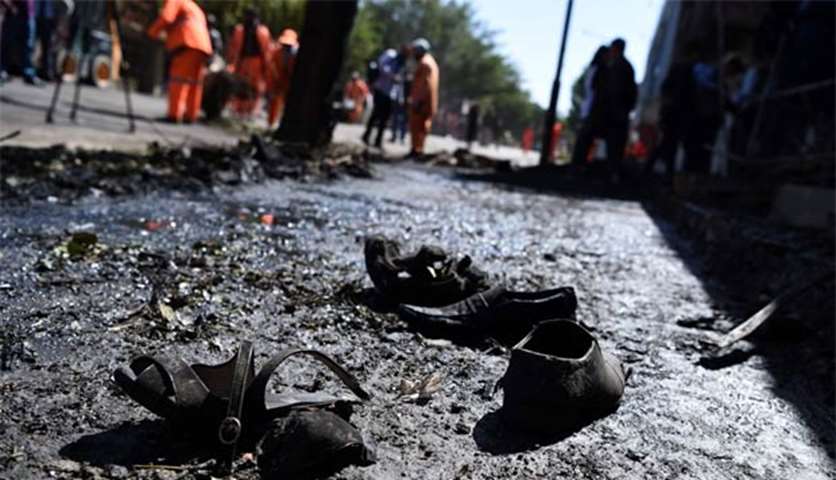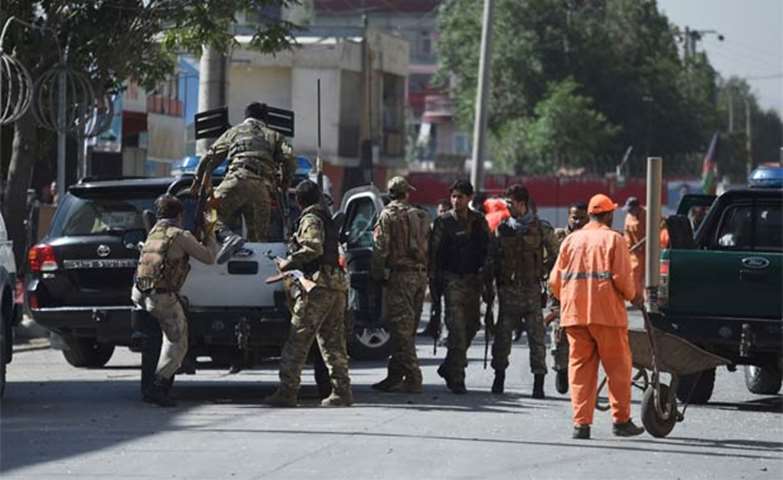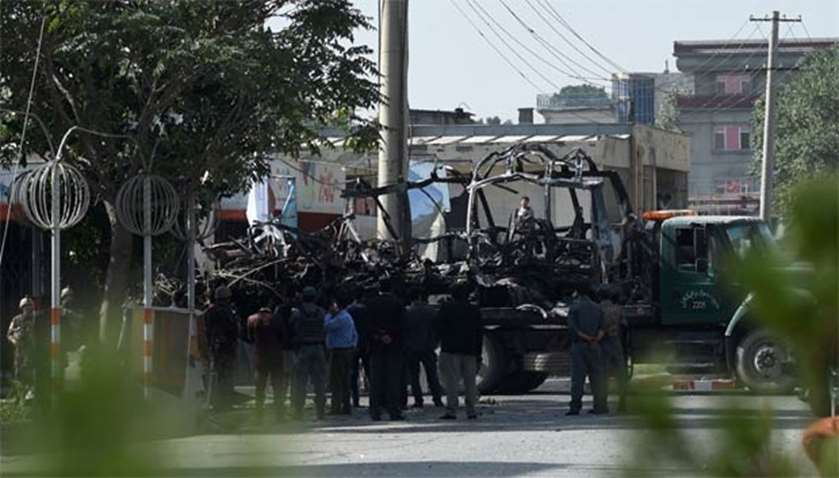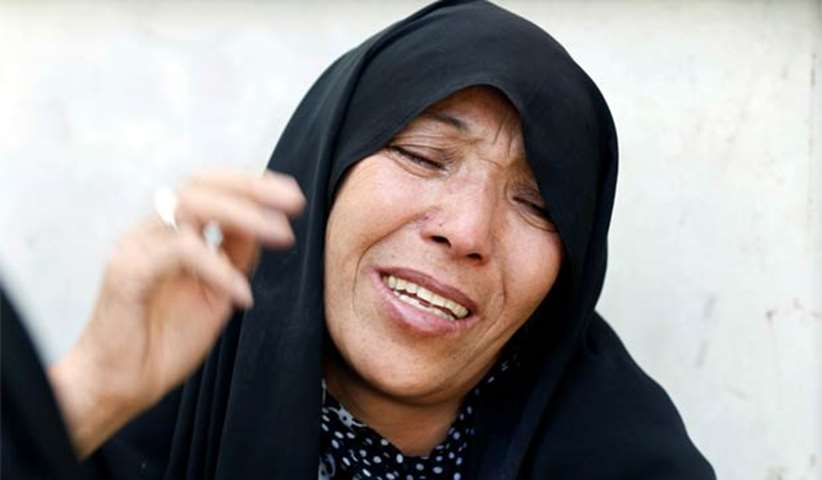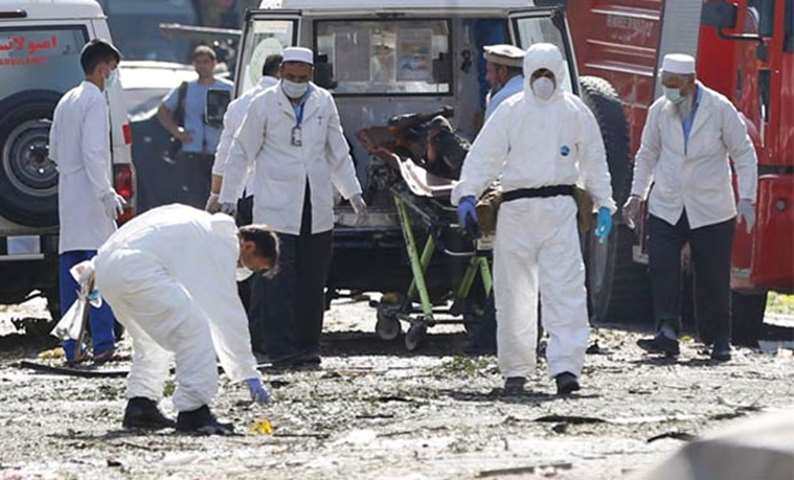* Suicide car bomber kills up to 35 people in Kabul
* Blast near Kabul's mainly Hazara community* Civilians bear brunt of unrelenting violence in Afghanistan
* Fighting flares in at least 7 provinces around Afghanistan
A Taliban suicide attacker detonated a car bomb in the western part of Kabul on Monday, killing up to 35 people and wounding more than 40, government officials said, in one of the worst attacks in the Afghan capital in recent weeks.
Police cordoned off the area, located near the house of the deputy government Chief Executive Mohammad Mohaqiq in a part of the city where many of the mainly Shia Hazara community live.
Monday's suicide bombing, which targeted government personnel, continued the unrelenting violence that has killed more than 1,700 civilians in Afghanistan so far this year.
The Taliban, which is battling the Western-backed government and a Nato-led coalition for control of Afghanistan, has launched a wave of attacks around the country in recent days, sparking fighting in more than half a dozen provinces.
"I was in my shop when suddenly I heard a terrible sound and as a result all of my shop windows shattered," said Ali Ahmed, a resident in the area of Monday's blast.
Acting Interior Ministry spokesman Najib Danish said at least 24 people had been killed and 40 wounded but the casualty toll could rise further.
Another senior official, speaking on condition of anonymity because he was not authorised to talk about the incident with the media, said the toll stood at 35 killed. That was in line with a claim on Twitter by Taliban spokesman Zabihullah Mujahid, who said 37 "intelligence workers" had been killed.
Mujahid said in a tweet claiming responsibility for the attack the target had been two buses that had been under surveillance for two months.
Government security forces said a small bus owned by the Ministry of Mines had been destroyed in the blast but the National Directorate for Security, the main intelligence agency, said none of its personnel had been hit.
Three civilian vehicles and 15 shops were destroyed or damaged in the blast, the Interior Ministry said in a statement.
The blast hit a busy neighbourhood of the Afghan capital just before 7am.
An AFP photographer at the scene saw multiple bodies and wounded people in the street, surrounded by shattered glass as security forces cordoned off the area.
The charred remains of the bus stood in the middle of the road and a black column of smoke from the explosion hung in the air.
An army truck and forklifts were attempting to remove the carcass of the bus as ambulances as well as taxis and private cars ferried the injured to nearby hospitals, an AFP photographer said.
Kabul's Hazara community were due on Monday to mark the one-year anniversary of an attack in the heart of the capital that killed 84 and wounded more than 300 people, mostly members of the ethnic minority.
That attack was the first in Afghanistan claimed by the Islamic State group, which has since carried out multiple attacks targeting the country's Shia minority.
The Hazara community were due to hold a demonstration to mark the July 23, 2016 tragedy, but had agreed to postpone the march after meeting with President Ashraf Ghani on Sunday.
Kabul is regularly rocked by suicide bombs and attacks. A recent UN report showed that attacks on the capital accounted for nearly one-fifth of all civilian Afghan casualties in the first half of 2017.
The UN Assistance Mission in Afghanistan (UNAMA), which has been documenting civilian casualties since 2009, said in its recent report that 1,662 civilians were killed and more than 3,500 injured in the first six months of the year.
Many died in a single devastating attack in Kabul in late May when a truck bomb exploded, also during the morning rush hour, killing more than 150 people and injuring hundreds.
UNAMA put the civilian death toll at 92, saying it was the deadliest incident to hit the country since 2001.
The bloody toll for the first six months of 2017 has unsettled the government and put increasing pressure on President Ghani.
Protests and deadly street clashes hit the Afghan capital in the wake of the May attack as people incensed by security failures called for his government's resignation.
The UNAMA report also said that nearly half of Afghanistan's 34 provinces have seen an increase in civilian deaths in the first six months of the year, mainly due to the rise in attacks by anti-government forces across the country.
Nato's combat mission in Afghanistan ended three years ago, handing sole responsibility to the country's security forces, which have also suffered spiralling casualties as they try to beat back the resurgent Taliban and contain the growing threat from the Islamic State group.

